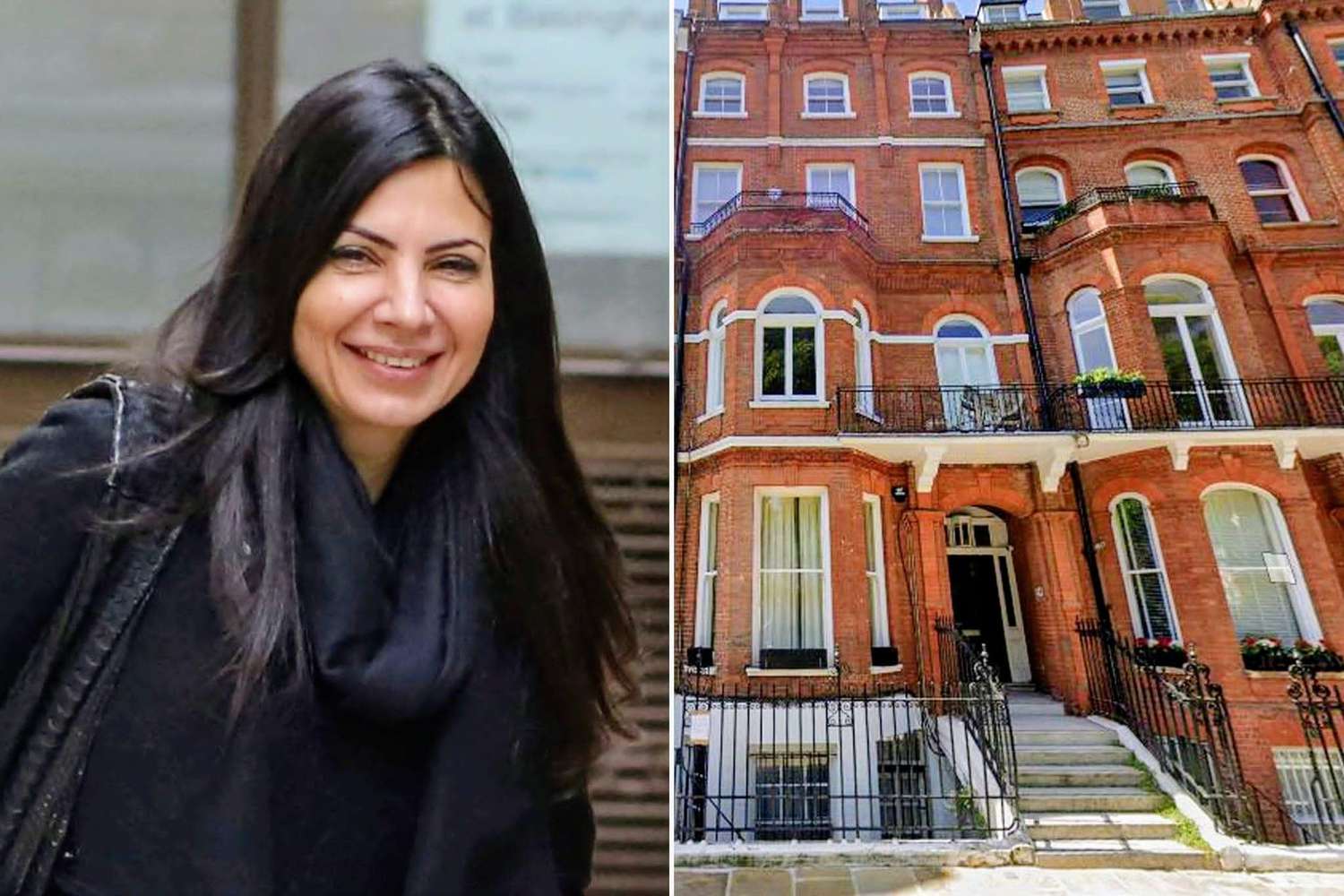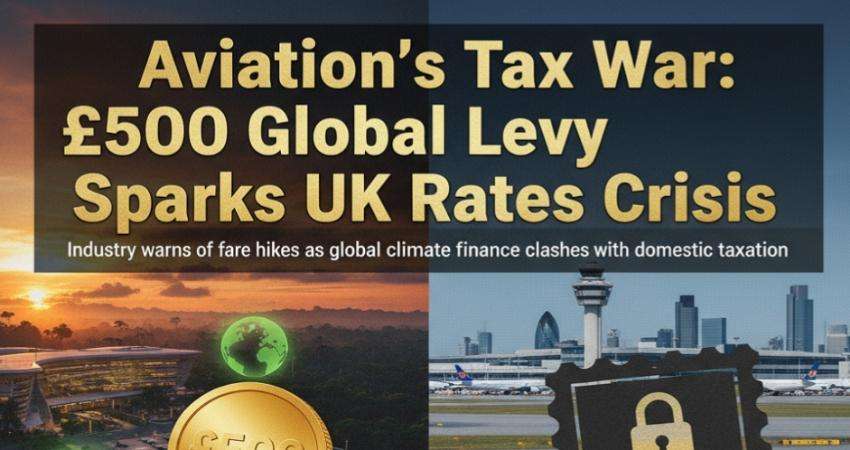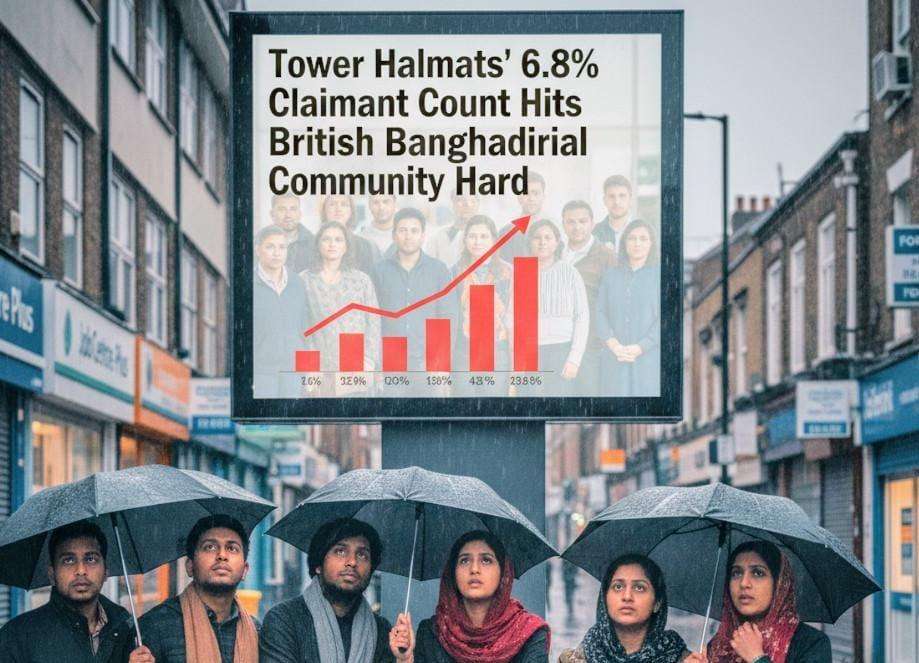The global aviation sector is bracing for a double-barrelled tax shock, combining a radical United Nations proposal to impose a £500 "Solidarity Levy" on premium flyers with an immediate, crippling domestic tax crisis brewing in the United Kingdom.
While climate diplomats at the COP30 summit in Belem, Brazil, debate the feasibility of a massive global wealth transfer, UK airports are simultaneously facing a colossal, multi-fold increase in their domestic property taxes, a move the industry warns will add hundreds of millions to operational costs and ultimately be passed on to every passenger, Daily Dazzling Dawn understands.
The £68 Billion Global Luxury Tax: A Distant Threat-The Global Solidarity Levies Task Force (GSLTF), championed by nations including France, Spain, and Kenya, is pushing the 500 levy on business, first-class, and private jet travelers. The goal is to raise an estimated €78 billion annually for "resilient investments and fair transitions" in developing nations, ensuring those with the highest per-passenger emissions contribute directly to climate finance.
However, the International Air Transport Association (IATA) has aggressively dismissed the idea as "crazy" and "counterproductive." IATA Director General Willie Walsh argues that extracting such a vast sum—nearly three times the industry's expected global profit for 2024—would severely damage airlines' capacity to invest in the Carbon Offsetting and Reduction Scheme for International Aviation (CORSIA), their established path to net-zero by 2050. IATA warns the financial strain on premium routes would inevitably lead to higher prices, reduced connectivity, and, crucially, increased costs for all travelers, regardless of their class. This fear is reinforced by existing mechanisms, such as Singapore’s independent Sustainable Aviation Fuel (SAF) levy, which already includes a charge for economy passengers.
The levy’s timeline remains a major hurdle. Given the need for a global treaty or coordinated national legislation and the complexity of creating an entirely new revenue collection mechanism, a globally mandated \text{\textsterling}500 Solidarity Levy is highly improbable before 2028-2030. Any immediate action would likely be limited to a "Coalition of the Willing" introducing small, national versions of the tax.
UK’s Immediate Crisis:1 Billion Rates Bombshell-Closer to home, the UK aviation sector is fighting an immediate battle against Chancellor Rachel Reeves ahead of the Autumn Budget on November 26, 2025. This controversy surrounds a drastic revaluation of commercial property, which could result in a massive, multi-fold increase in airport business rates starting in April 2026.
Major operators, including Heathrow and Gatwick, have warned the Treasury that the proposed revaluations by the Valuation Office Agency (VOA) could result in an "eye-watering multiple-fold increase" for the sector, adding up to1 billion to the industry’s collective annual tax bill. Heathrow, which already faces an annual business rates bill of hundreds of millions, has stated that an unmitigated rise would deter private investors, threaten its \text{\textsterling}49 billion expansion plans, and drive "unacceptable costs for airlines." Gatwick has echoed the sentiment, warning the cost shock could threaten its plans for full-time second runway usage.
The core of the issue stems from a change in the valuation methodology, which shifts the assessment from building and land value to profitability. Since the new rates will be based on the financially recovered period of 2024—post-pandemic travel surges—the resulting valuations are disproportionately high. Industry body AirportsUK has warned that this is equivalent to "doubling the corporation tax levied on the sector," forcing airports to scale back investment or, more likely, pass the cost directly to the consumer, adding an estimated \text{\textsterling}3 to \text{\textsterling}4 per passenger to the cost of every flight. Ryanair boss Michael O'Leary also warned that increasing the tax burden on airlines could lead to them relocating operations to countries with lower business taxes.
Pre-Scheduled UK APD Rises Confirmed-Adding further pressure to premium passengers, the UK government has already confirmed significant, pre-scheduled hikes to Air Passenger Duty (APD), the UK’s existing flight tax. While the Budget is scheduled for later this month, the rising rates are locked in:
The higher rate of APD for premium cabins and private jets on long-haul flights is already £216 and £647 respectively. However, the confirmed increases for the tax year beginning April 1, 2026, will see the private jet rate for the longest flights surge to over £1,100 per person. The rates for economy passengers will also continue to rise annually, confirming the reality that the aviation sector is becoming a critical and increasingly burdened revenue source for governments globally.
The simultaneous fight against a potential global climate levy and a confirmed domestic tax hike highlights the profound fiscal challenge facing the aviation industry: how to finance a multi-trillion-pound transition to net-zero while battling what it calls punitive, fragmented, and counterproductive taxation.








.svg)



